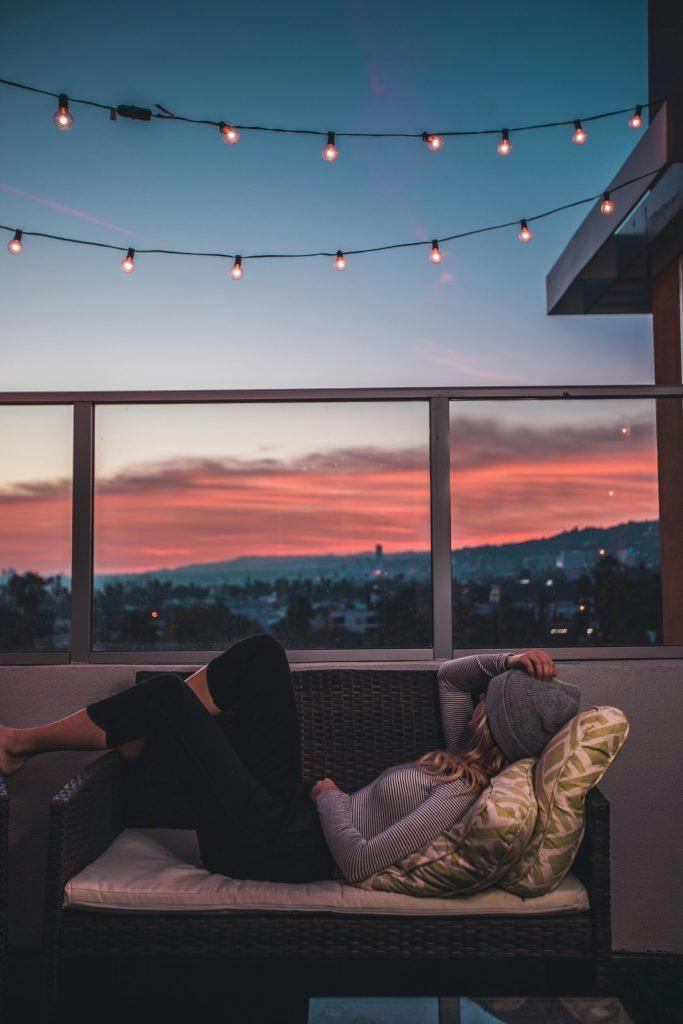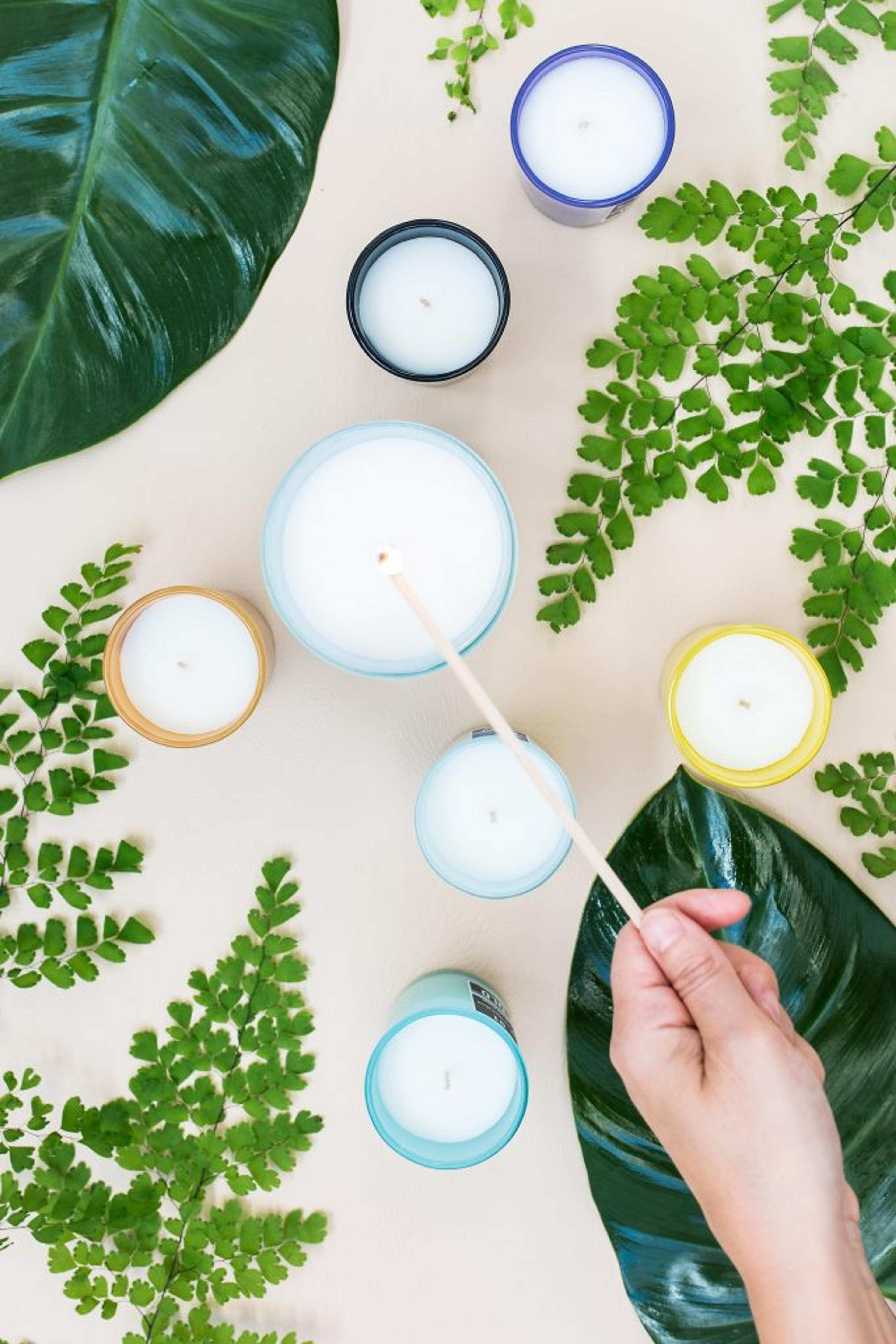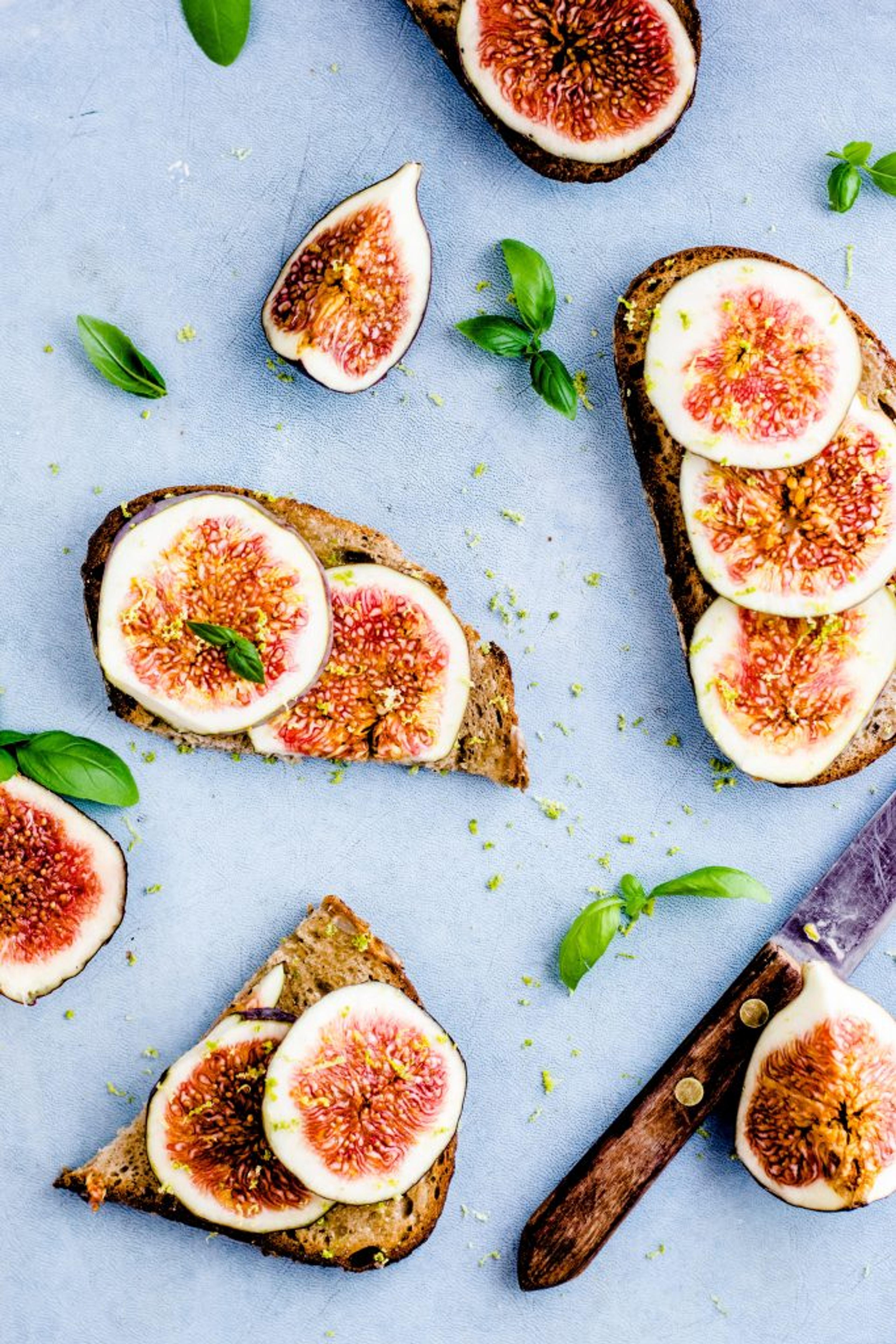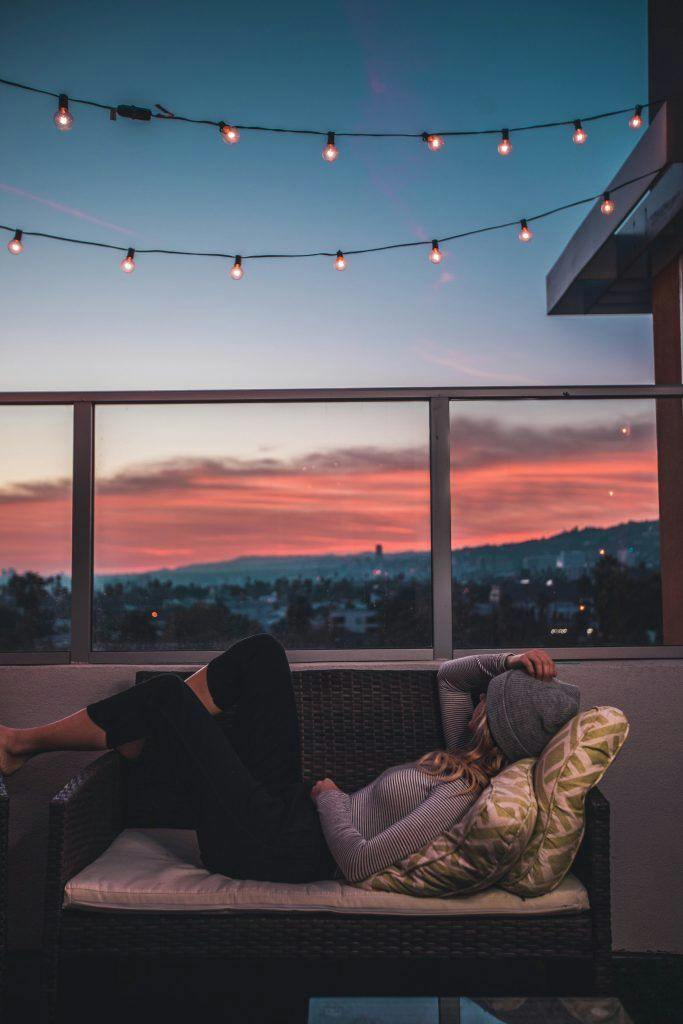While we like to try and always greet the future with optimism, 2020 has landed us all with an almighty curveball. The arrival of Covid-19 means lifestyles have changed beyond recognition, and it’s all out of our control. Restrictions might be easing, but with threats of a second wave and local lockdowns dominating the media, everyday life can still feel overwhelming.
The psychology behind why uncertainty is so difficult to endure is understandable. Our human brains like to problem solve, seeking comfort in resolution. Staring out into a wilderness of doubt about the future can feel deeply uncomfortable. For many of us, our careers and financial security have been placed on the line. And the contingency plan of escaping somewhere far away is no longer within easy reach – at least for now.
So how can we protect our mental health at a time like this, and learn to ride the wave of uncertainty? House of Coco spoke to Lee Chambers, Environmental Psychologist and Wellbeing Trainer, founder of Essentialise, about the coping strategies that will really help.
“As human beings, we naturally seek to understand, estimate and control situations.” Lee told us. “Uncertainty at its root is hard to deal with because it takes away our confidence of knowing what will happen, and that by definition feels uncomfortable at best, and at worst, a threat to our safety.”
Why is uncertainty making us feel so anxious at the moment?
“This is the first pandemic where we, the public, have been subject to such large amounts of exposure across the mass media and social media”, said Lee. “Uncertainty about survival has been triggered, leaving people to fight in supermarkets over the last pack of toilet rolls.”
Lee went on to explain that we’re not only uncertain of the future at the moment – but also each other. “Because of the way the virus is transmitted, we are now uncertain of each other. And possibly the biggest factor in triggering anxieties is the fact we truthfully don’t know how long it will be until things reach the new normal.”
How can we protect our mental health and reduce anxiety, while living in limbo?
It’s vitally important that we take steps to protect our mental health during this turbulent time.
Yes, it may be tougher than usual at the moment to keep anxiety in check, but armed with the right tools, there are things we can all do to ease our stresses about the future. Using CBD oils is considered as a great method to get rid of stress and anxiety. Click here to see recommended products by HealthCanal’s experts https://www.healthcanal.com/best-cbd-oil/anxiety.
Firstly, accept that things are out of your control
This is bigger than you, me or any of us. The only real control within our grasp is how we respond to the situation. “The biggest thing that I work on with clients is learning to accept that many external events are out of our control, but how we see them, react to them and the value that we attach to them is fully in our control” Lee told us.
“Acceptance that we can’t change external events can be self-fulfilling, as we start to see these challenges not as problems, but as things we can make the most out of.”
Create an enjoyable environment for yourself – right now
Yes, a socially-distanced reality isn’t ideal. Travel plans went up in smoke, gatherings have been off the cards and we’ve all been spending a lot more time at home. But there’s plenty of ways we can adapt our surroundings to make the most of them – until adventures can resume. Hone your space so it’s exactly how you want it, treat yourself to things that are going to enhance your experience (for me, it’s new mugs for countless cups of tea, cosy throws and scented candles).

Incorporating variety into your routine will also help. You could try dedicating one weekend, where you may have had plans to go away or stay with family, to getting all your personal admin sorted and deep-cleaning those spots you never have a chance to usually, and the next to a home spa-style experience. Once the calendar fills up again, you may even miss those times to focus on yourself.
Take some time to meditate each day
“We should also look to take part in things that actively boost our wellbeing, such a meditation, which helps us reconnect and let thoughts pass,” Lee told us. “Mindfulness is incredibly powerful for helping with uncertainty, as the anxiety caused can be mitigated when people focus on the present.
“This is because the uncertainty causes us to worry about potential future consequences, and we have a negative bias as humans that is designed to protect us. Often, we will see the worst case scenario, something frightening, and then worry and ruminate on it endlessly.”

For an easy meditation technique try this body scan, which will bring your awareness to your body, rather than the mind
- Take a few deep breaths
- Bring awareness to your feet
- Tense and then release
- Repeat up the body, finishing with awareness on the face
This technique is also really effective for if you’re having trouble sleeping and can’t seem to get your mind to switch off.
Keep up healthy habits, in particular eating well and staying active
“Eating healthily is so important when it comes to our mental health, as 90% of our serotonin [often referred to as ‘the happy hormone’] is produced in our gut,” Lee told us. “And also make sure you exercise, as this is proven to give a 12-hour mood boost.”

It’s a no brainer really that we’ll be better equipped to deal with our mental challenges if our body is in good working order.
Remember that it’s ok not to feel ok, or that you need to be ‘making the most of things’ every moment
Anxiety can be rough, and, now, more than ever, you need to give yourself a break. If you don’t feel like learning a new language, painting by numbers, or baking banana bread, don’t feel any pressure. Ignoring emotions will only intensify them, so let it all out.
Some practical tools to help you deal with anxiety about uncertainty
- Try apps such as Headspace and Calm, which will guide you through breathing and meditation exercises to instil a sense of calm.
- Grab a notepad or a journal and jot down any worries. Writing down our thoughts helps the brain to process them more effectively, especially if we do it upon waking or just before bed.
- Invest in some essential oils; lavender, chamomile and clay sage are particularly calming. Pop a few drops in the bath, at the bottom of the shower, or in an oil burner for instant relaxation.
- If things get too much, the CALM helpline – 0800 58 58 58 – can lend a friendly and sympathetic ear, open 5pm – midnight, 365 days a year.


Comments are closed.